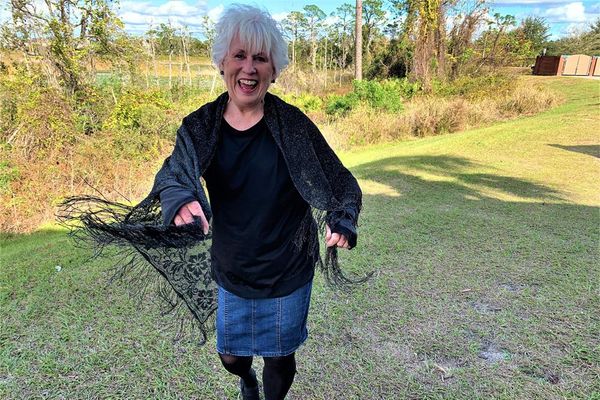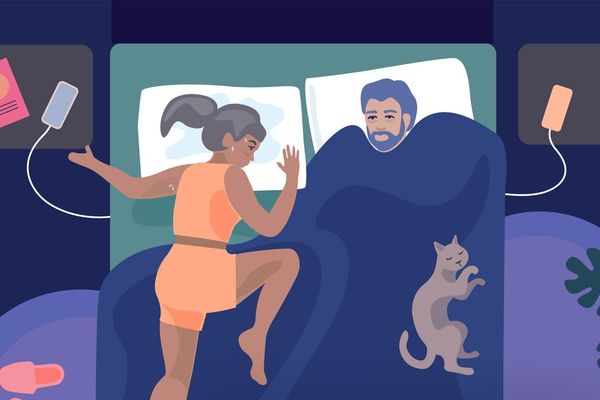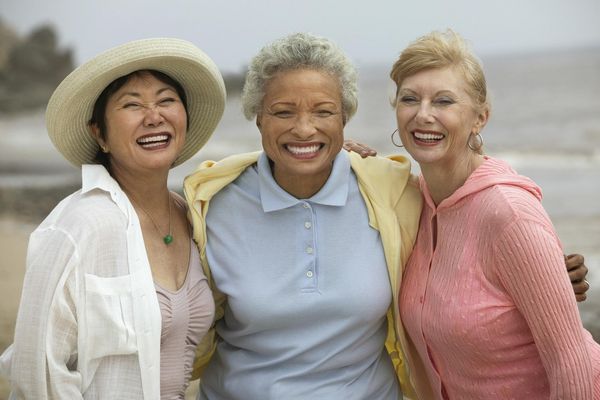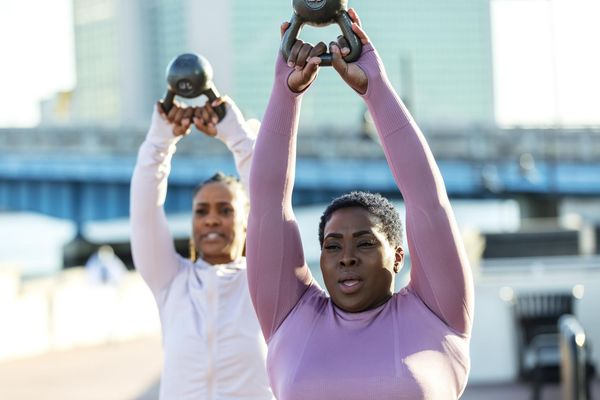I'm focusing on things we can do now to promote good health as we age. Many of us feel indestructible when we are young. And that sense of invulnerability and invincibility is what, I suppose, allows us to have a sense of freedom and take risks. But as a nurse and a woman in her 40s, I know that soon enough, our health catches up with all of us. Even though it may seem far in the future, the day gets here when, more than gray hair and wrinkles, aging begins show up in our bodies.
That's not to say we need to sit idly by, accept that fact and do nothing (or stop having fun)– quite the contrary! Here are some things you can do now, so you'll thank yourself later.
Keep your bones and muscles strong.
As we age, our bones lose calcium and other valuable minerals. With that, bone mass or density decreases - especially after menopause – making us more susceptible to fracture.
Bone loss, although it accelerates around menopause, actually begins early – around age 30 - which is when you have obtained your major bone mass. After that, your body "withdraws" from your bone bank; for each year after 50, you lose an average of 0.5% of bone.
Our muscles also change and weaken over the years, too; contributing to fatigue, weakness and difficulty with exercise or endurance.
Since bone and muscle loss can affect your balance, gait and overall endurance, it's of vital importance to fight against it by doing these things:
Make good lifestyle choices. Since things like smoking and excessive alcohol consumption contribute to bone loss, kick those butts and cut way back on your drinking (or adopt the role of a teetotaler!) And since the average American diet does not contain enough calcium - which we need for strong bones – make sure you get between 1,000 and 1,500 mg per day, as recommended by the National Osteoporosis Foundation, plus Vitamin D (which is necessary for proper absorption). Recommended intake of Vitamin D is 600 international units (IU) for adults up to age 70, and 800 IU for adults over 70.
Exercise is very important in building, and maintaining, strong bones and muscles. You can't start too early! Especially valuable is weightbearing exercise, like dancing, jogging or running, stair climbing, tennis, hiking, jumping rope or high-impact aerobics.
But you need not go all-out and high-impact to benefit: low-impact things like elliptical training machines, stair-step machines or even fast walking on a treadmill or outdoors all count, too
Lifting weights, using elastic exercise bands and practicing functional movements (like repeatedly standing and rising up on your toes) should be incorporated into your routine at least two days each week as well.
Add Fiber to Your Diet
The average American does not get enough fiber; in fact, that number is as high as 95 percent of us in one study. The Mayo Clinic says that women should aim for between 21 to 25 grams a day.
Structural changes in the large intestine can contribute to constipation as you get older. Other contributing factors: A lack of exercise, not drinking enough fluids and a low-fiber diet.
Fiber does not just benefit your digestive health: Adequate fiber intake is also associated with a reduced risk for many chronic diseases and ailments like heart disease, stroke, hypertension, obesity, type-2 diabetes and certain cancers, whose risk all increase with age.
That's why it's important to incorporate high-fiber foods, like fruits, veggies and whole grains and cut back on high-fat meats, dairy products and sweets (which can contribute to constipation). Need some more in-depth suggestions? Here's a helpful list of some high-fiber foods.
Protect Your Eyes and Ears
You're never too young to start: When you're outdoors, always wear sunglasses and a wide-brimmed hat to shield your eyes against the sun. Extended exposure to the sun's harmful UV rays is linked to serious eye disorders, including macular degeneration, photokeratitis and cataracts.
Skin cancers can also appear on the eyelid; this area accounts for five to ten percent of all skin cancers. Eyelid basal cell carcinomas, unlike other basal cell carcinomas elsewhere on the body, can spread to the eye itself and cause significant damage to the eye and facial disfigurement.
And since repeated exposure to loud noises can permanently damage your hearing over time, avoid, or protect against, loud noises with earplugs whenever possible.
Show Your Heart Some Love
As we age, our blood vessels and arteries stiffen, which puts more exertion on your heart in order to pump blood effectively. Although your resting heartrate remains around the same, it doesn't increase as much as it used to during activities, which can increase the risk of high blood pressure and cardiovascular problems.
Keeping your blood pressure down is a good way to minimize your risk for heart disease as you get older. Practice a healthy lifestyle by exercising regularly, eating a balanced diet, losing weight and quitting smoking. Besides that, regular screenings, like blood pressure, blood sugar, blood counts and cholesterol levels, can help uncover any problems before they start and may help prevent a heart attack or stroke. And of course, wherever and whenever you can, work hard to minimize or manage your stress (which can take a toll on your heart) with measures like meditation, talk therapy or exercise.
And finally, feeling young at heart may actually help prolong your years. Though researchers cannot say for sure that feeling young at heart will actually make you live longer, their study finds a strong relationship between perceived age and cardiovascular death.
So the next time someone asks you, "how old would you be if you didn't know how old you were?" or "how old do you feel?", take a minute to think about it. If you feel younger than your chronological age, you may be helping your heart stay healthy.







